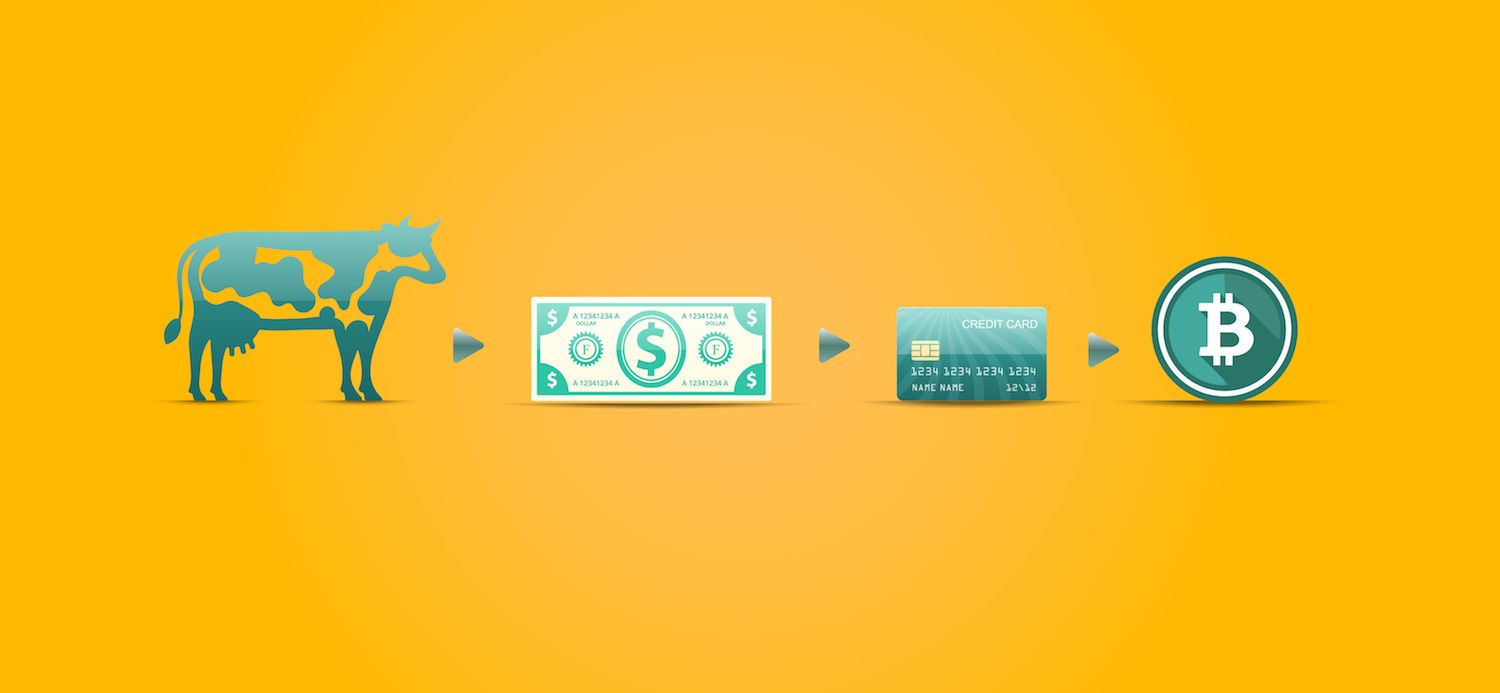Why Bitcoin? Next Steps for Mass Adoption
Part 9: Challenges and opportunities for a global Bitcoin economy.

Share this article
In this series on Bitcoin and money, Crypto Briefing takes a deep dive into the complexities of the modern monetary system and how Bitcoin, as the ultimate hard money, can serve as a solution to many of its problems.
In concluding the series, we examine the steps that will lead to a truly decentralized global economy, and the challenges that participants in this economy will face along the way. The full nine-part series is available here.
The Circle is Complete
When we began our exploration of the evolution of money and its eventual arrival at the mathematical “discovery” of Bitcoin, we examined the simplest of all forms of trade: bartering.
Bartering offered the objectivity of purely market-based exchanging of goods holding intrinsic value to trading parties. It held the freedom of purely consensual trade without the need for intermediation. Yet, the bartering method was held back by the inconvenience of trading one thing for another, thus limiting the capacity for trade between parties with differing wants or needs.
Bartering was also held back as an ideal trading method due to its lack of portability, requiring vast shipments of unwieldy quantities of goods for the purposes of larger scale or distant trade between nations.
While early currencies like beaver pelts and seashells, to be eventually replaced by purer forms of money like electroneum and eventually the more refined and much harder money; gold, served a purpose as a means of exchange—and in gold’s case, a storage of value—practical limitations led to the inception of paper currencies or “flying money” that made trade far easier.
These currencies, time after time, fell victim to manipulation as governments and other economic powers struggled throughout history to prop up failing systems with easy money. Paper and digital currencies of today are facing this same problem, but a new innovation in the hardest form of money ever conceived, with all the advantages of the ancient barter system and the conveniences of modern currencies, is now available to the world.
Bitcoin is the completion of this full circle in the evolution of money.

Small Steps Towards Hard Money
It bears mentioning that we are in the early, some might even say, infant, stages of this monetary development. This is a period of rapid change, great volatility, mistakes paired with learning, and exponential growth.
Many problems remain, from achieving true fungibility, to managing custody, to delivering true privacy. The fact that Bitcoin is pseudonymous in nature rather than anonymous means that certain bitcoins attached to particular addresses, associated with criminal behavior for example, may not in fact have the same fungibility as “clean” bitcoins might.
Custody remains an intimidating issue for many more casual users who are fearful of losing funds due to human error, such as losing seed phrases to private keys or incorrectly sending transactions.
Privacy also remains a concern, particularly as governments and banks in certain jurisdictions are doing their best to stem the tide of cryptocurrency adoption, especially in unstable or fragile economies.
This is the great advantage of a programmable decentralized money. While facing barriers of various kinds on multiple fronts, the technology continues to innovate. Developers across the world continue to contribute enormous quantities of brainpower to finding solutions that will only make blockchain technology stronger and more useful.
This is a young technology, only a decade old. The speed of maturation on this tiny timescale is stunning. New innovations like the Lightning Network, Schnorr signatures, Taproot, and a myriad of other proposed advancements will continue to improve the protocol’s speed, privacy, utility, and efficiency.
This is only possible with a decentralized force of innovators across the world contributing to the cause of development.

While Bitcoin already successfully acts as a storage and settlement layer for large exchanges of value, second-layer technologies like the Lightning Network enable virtually instantaneous transactions of smaller amounts — think buying a coffee — in the secured Bitcoin ecosystem.
Small steps in improving the network’s functionality can be innovated through various second-layer technologies, anchored to the hard money base layer of Bitcoin.
The possibilities for future innovations of technologies running on top of the Bitcoin protocol are virtually infinite, akin to the vast range of applications running atop the Internet today.
Bitcoin is Hedging Against Disaster
At this stage of the game, with current conditions pointing to the possibilities of greater quantitative easing, inflation, and in many cases, hyperinflation, Bitcoin is becoming more attractive as a hedge against economic disaster.
While gold certainly has its place as such a hedge, as mentioned in Part Two, Bitcoin offers significant advantages. True custody, rather than reliance on papers that declare ownership, the ease of “capital flight” from failing economies, true scarcity as the hardest money ever conceived, and the aforementioned programmability distinguish Bitcoin from all other forms of money.
It is the best suited solution to protect against the failures of our deeply flawed global economy.
Changing the Money Mindset
We live in a world that has been conditioned to spend, often well beyond monetary means. This is symptomatic of a Keynesian economic philosophy that lives and dies on an unsustainable and constant increase in spending habits from the population. The cure for recession is “stimulation”, accelerated in the past decade through the tool of quantitative easing that prints money ad infinitum, ex nihilo; infinitely, out of nothing.
Bitcoin offers a change in mindset for every participant who holds or exchanges it. A gradual shift takes place in the mindset of such a user, from spending to saving, from excess to investment.
This is caused by a shift from short-to-long-term gratification, that manifests in the act of saving an asset with the goal of achieving greater returns in the future.
The current low-to-negative interest rate climate causes precisely the opposite effect, encouraging a preference for consuming rather than saving, living in perpetual debt, and spending without any concern for future implications.
This worldview extends globally to the enormously out-of-control spending practices on, for example, the irrationally expensive military industry, which must then enforce the fiat standard by any means necessary in order to maintain compliance between nations.
With easy money as the base layer for economies, notions of fiscal restraint are often merely a distraction, wielded by so-called conservatives to pander to voters, with no genuine intention to change the fundamental flaws of the system, benefiting the few at the cost of many.
Thus, the change in mindset must take place in individuals who choose to exercise their ability to achieve monetary sovereignty.
Bitcoin, as a money that is freely traded and stored without the possibility of government interference, acts as such a tool, enabling an organic infiltration of the monetary system that cannot be stopped by any central power.
As this mindset spreads among populations, it only becomes stronger and more influential in changing the way money works as a free market entity, without the need for any form of coercion or heavy-handed control.
Cryptocurrency is True Capitalism Unleashed
Bitcoin as the first truly free-market money will unleash a form of capitalism that the world has never seen.
In such an economy, cronies and oligarchs can not persist since hard money prevents the acts of manipulation and control present in our current near-feudal system of monetary control.
Monopolies and duopolies will be challenged by new entities who, seeking to invest for the longer term, will innovate and produce in a competitive environment that sees the best products and services win favor from consumers.
Central banks and elite allies can no longer collude to hold the rest of the economy hostage when they are unable to hold the reins of money production, instead being forced to play on a “level field”, competing along with the rest of the population.
The Great Shift To Satoshis
Such a shift appears enormous, and perhaps even impossible, but it is not as far-fetched as once imagined. It is often argued that it was far more difficult for Bitcoin to move from zero to something in value than it was for it to move from $1,000 to $20,000.
This recognition of monetary value first took place in 2009 when Martti Malmi, “a Finnish developer that helped Satoshi work on Bitcoin, sold 5050 Bitcoins for $5.02. This gave 1 Bitcoin the value of $0.0009,” said 99Bitcoins.
From this point forward, bitcoins have held some quantity of free market value, albeit with significant volatility due to the relatively small size of the market and the enormously rapid growth in popularity of the digital asset.
As this market continues to grow, Bitcoin gradually spreads to more users and continues its infiltration as the new base layer for money. Being the hardest money to ever exist, it may indeed act as the new metric of money.
Just as the metric system—a mathematically objective and scientific system of measurement—eventually grew and was adopted as the most popular standard for much of the world, the satoshi, the smallest increment of value in Bitcoin, can be used as a standard for the measurement of value that is more objective than any other form of money.
This shift in mentality is a step forward from the arbitrary comparisons between fiat currencies that hold no free-market or objective value between economies. Unlike the metric system, this form of measurement will not need to be officially adopted or enforced by central powers in order to grow in utility, instead spreading freely via market forces.
Bitcoin offers a sound money solution that was abandoned entirely at the inception of fiat currency.
Offering objective, purely market-based money that allows for trustless and permissionless trade between parties, Bitcoin establishes a new standard that democratizes money in a manner that was not possible until its creation.
This transformative revolution is silent; moving forward merely through the simple act of free exchange between any who wish to participate as it unfolds.
Share this article
